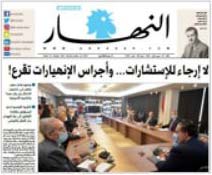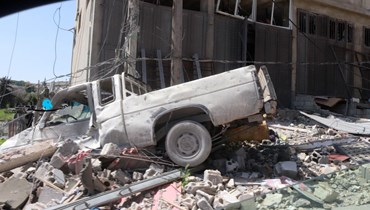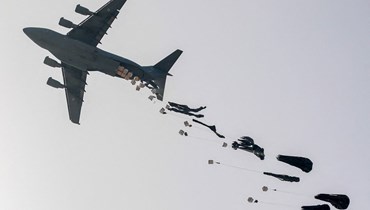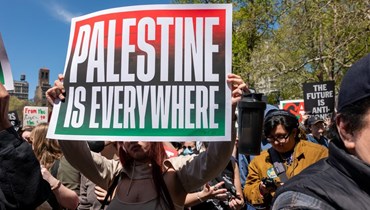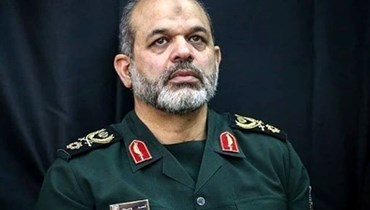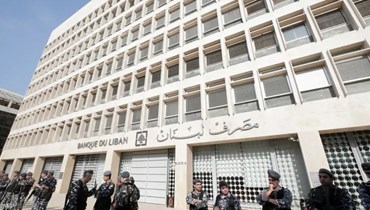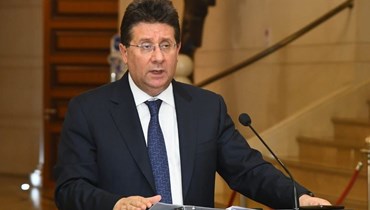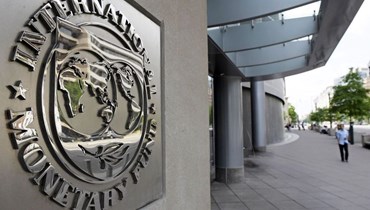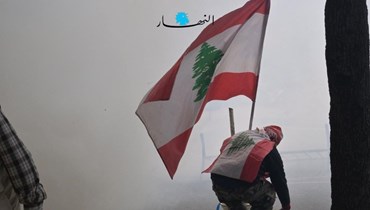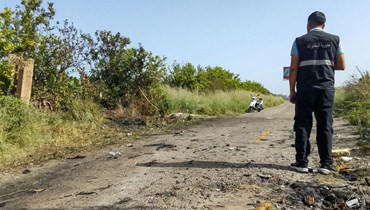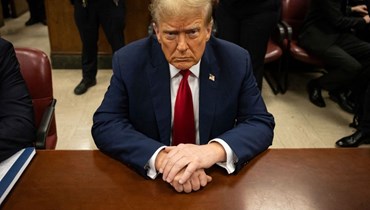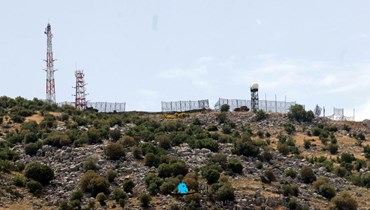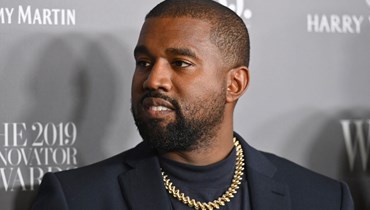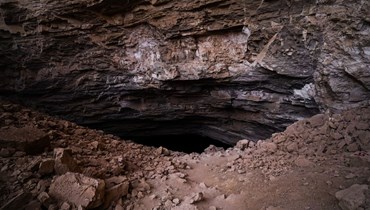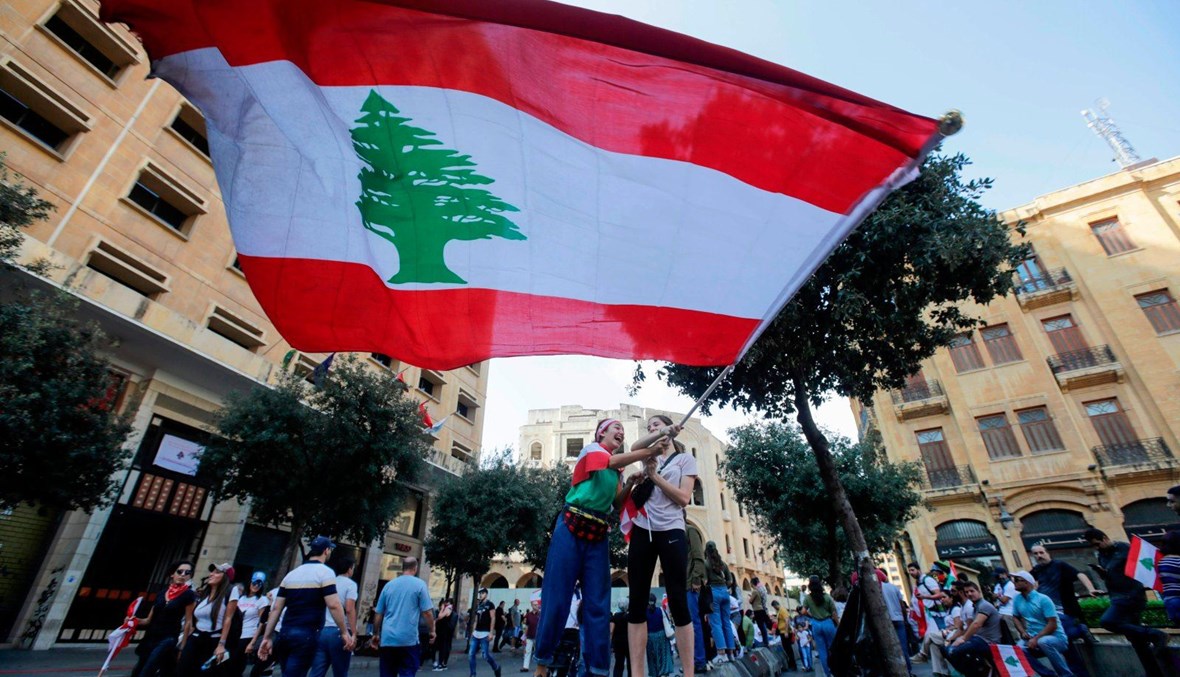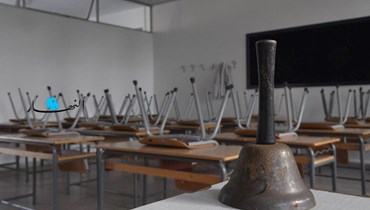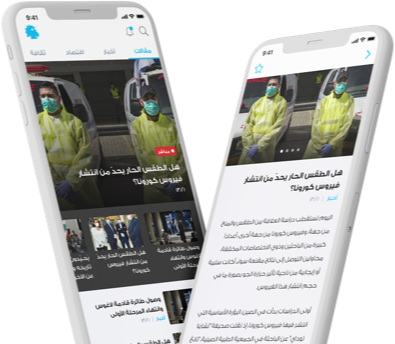Birthing the Lebanese Third Republic: A Reckoning
Sara El-Yafi*
Many have been mourning with grief the “end of Lebanon” as we know it. Hordes of articles have been written by both local and foreign journalists that lament the “death of the Lebanese constitutional system”, the demise of “all hope”, and the “end of times” due to the hardships that Lebanon has recently been subjected to. One even went so far as to say that we are living in Lebanon “the end of the world.” While we are indeed living in extraordinarily emotional and difficult times, I do not believe that it is the end of the world, nor the end of times, nor certainly the end of all hope, but I do believe it is indeed the end of Lebanon as we know it, and that is excellent news.
Rejoice.
A Lebanon that was built on the greatest Ponzi scheme ever known to humankind, a Lebanon that upgraded militia leaders and warlords to statesmen to govern it, a Lebanon that was specifically designed to enable the political cartel to usurp national resources and public assets exclusively for self-serving enrichment, a Lebanon where citizens are forced to ensure their own electricity, water, and security due to the abusive absence of the state, a Lebanon where politically-allied merchants hoard life-saving medications with the target of selling them later at a higher price and go unpunished by the state, a Lebanon where citizens have to beg people in foreign nations to send them a box of beta blocker medicine or a diabetes syringe to avoid the death of their loved ones, a Lebanon whose politicians have demolished its ethereal mountains with their corrupt and illegal quarries, a Lebanon whose state does not have the monopoly of weapons or the use of force, a Lebanon that is controlled by an Iranian-backed militia that has the complete freedom to wage wars, protect drug cartels, smuggle our resources across the border, and violently target unarmed civilians at its whim with complete impunity, a Lebanon where the mafia politicians ravaged its legendary coastline with their cancerous trash dumps, a Lebanon whose judiciary has been historically unable to investigate a single political assassination or a single corruption scandal because most senior judges serve and protect the political mafia, a Lebanon bowing down to the affront of a system so confessional that politicians block even the designation of forest keepers if they don’t get their confessional quota, a Lebanon that hands its own children the world’s most crippling debt relative to its GDP, a Lebanon that has become a narco state that produces and exports drugs with impunity, a Lebanon where only some of its citizens pay taxes, duties, or are billed for electricity while others do not pay a single penny because they belong to a political party that has the full immunity to not answer to the state, a Lebanon that evaporated 100 billion-plus of people’s life savings in USD due to the worst economic charade the world has ever witnessed, a Lebanon that impoverished a nation of people whose only fault was that they chose to live in their own country and not expatriate themselves, a Lebanon whose capital gets exploded in the largest non-nuclear explosion the world has known and the same political class that brought in and protected the ammonium nitrate proceeds to form the “salvation government”, a Lebanon whose quality of overall infrastructure is estimated to be in the bottom 5% of the world as per the World Economic Forum’s 2017-2018 Global Competitiveness Report, and finally but perhaps worst of all, a Lebanon whose political class served, collaborated, and conspired with the political and military occupation of Lebanon for decades uninterruptedly…
… is a Lebanon that simply must die.
It must die.
And its death should be greeted with multitudes of celebratory bellows at the very least, but more importantly, it must be greeted with the planning of a triumphant national project of structural reform with an overarching fresh narrative of who we are as a nation: a project of renaissance, in the literal sense of the term, carefully conceived and executed, that will put the final nail in the old republic’s coffin and usher in the modern republic of Lebanon. The promise of an advanced and modern Lebanon rests entirely in the hands of this renaissance project.
It must however be said that this renaissance project will only be able to effectively come forth if we posit first and foremost a new all-embracing narrative of who we are and what we stand for as a nation.
In our revolution for a new Lebanon, it is absolutely not enough to change the faces and names of the Old Guards. We need to change and revolutionize the entire narrative of the Old Guard regime, the entire system that they have established, and transform our story and the soul of Lebanon. Many revolutions in countries around the world have failed to change the status quo because those who led them merely took over the reins from those who had been toppled and re-established a similar system. In their renowned book “Why Nations Fail”, Daron Acemoglu and James Robinson caution against this exact trait in revolutions, and how it is imperative to “change the structure of society”, and not just its leaders. In our current revolution, some opposition figures still resound the Old Guards’ narratives, which in my opinion is even more dangerous than keeping the Old Guards in place. “It is indeed difficult for ordinary citizens to acquire real political power and change the way their society works, but it is possible. This happened in England, France, and the United States, and also in Japan, Botswana, and Brazil. Fundamentally, it is a political transformation of this sort that is required for a poor society to become rich.”, they state in their book’s preface.
If we wish to reclaim our country and birth our Third Republic, we need to demote every single dysfunctional story that has harmed us—that benefitted the Old Guards’ regime. It is time to claim our power and tell our own story with our own voices to define our new and modern Lebanon. And if we refuse to let go of the old narratives, if we insist on staying attached to any of the old dysfunctional stories that have brought our country to its demise, we will rot away under the putrid casings of these tired chronicles, and the dying Lebanon will not regenerate into a modern third republic, but instead it will kill us with it and postpone any dream of a modern Lebanon by another 100 years.
In no particular order, I have identified nine narratives that in my opinion must be dismembered and relegated to the annals of dark history, and I will be offering the counter narrative that I believe must become ours. This is not a final list, there may be more, but in my opinion, these are nine of the dirtiest narratives that have defined our identity until now and that must be demoted and transformed into more wholesome narratives that truly reflect who we are and hope to be. Allow me to make the case for each one.
- Dysfunctional Narrative 1: “Sectarianism” and/or “Lebanon can thrive through sectarian partition”
-
Sectarianism is the existence of polarized and actively competing communal communities along religious and/or political lines that results in a strong sense of division that transcends all commonality in a given society. The existence of sectarianism in a country is one thing, designing a social and political order based on sectarianism is another thing. The former is passive, the latter is active; and sectarianism as an active political order has been one of the major reasons for the downfall of our country. It is the resulting narrative of the colonial timbre of Lebanon that weaved the Lebanese sectarian identity, at least in large part. A narrative that was centered on a confessional centerpiece of our existence, was linked by foreign powers to our survival, and was brought to fruition by all. It would become the forever playground of foreign powers, manipulative toxic clan leaders, and one of the major reasons for the failure of the state.
But there is a history worth mentioning.
After 400 years of Ottoman rule, our Republic was drawn based on the French Constitutional Laws of 1875, and our constitutional model was that of the French Third Republic. The Lebanese identity became uncomfortable for some to embody with others due to the introduction of the concept of exclusive pure spaces by the French meant for exclusive chosen ones; some seats and some spaces were simply reserved for a selective few from a particular religion. However, after a short period of time, the story of special rights in a democratic republic backfired when, years later, the left-out groups sought their own foreign colonial umbrella and clapped back with a counterattack of their own narrative of religious and/or ethnic specialness, which made the former groups uphold more fervently their own original specialness, and all hell broke loose. European vs Arab, East vs West, right vs left, religion vs religion, all were totally imported narratives. If you were one, I wanted to be the other, and the constant division meant that the robust and modern Lebanese state would never be born. A strong national story failed to be weaved.
Imperial history expert, Dane Kennedy, links this failure to the “tragedy of decolonization.” A tragedy that is derived from the collapse of the nation-building process in post-colonial times, which often is caused by confrontations between various ethnic, religious, linguistic, and other cultural groups seeking to form new nations according to their own interests and identities. The outcome of decolonization, he says, “is universally so problematic” because of the radically different concepts of sovereignty and citizenship that are proposed as the state struggles to appropriately incorporate different groups. If the differences are not remedied to at inception with the right promises of security, the differences will form the deepest schisms of society, and no one will thrive except at the expense of others.
Our 1926 Constitution was vague and did not address the concerns of the Lebanese. Then, the 1943 power-sharing arrangement, known as The National Pact, whereby the President is always a Maronite, the Prime Minister always a Sunni, and the Speaker of Parliament always a Shiite, and whereby the Muslims agreed to let go of Syria and the Christians agreed to let go of France was a poisonous deal wrapped as a treat. It sounds great that the Muslims said no to Syria and that the Christians said no to France, but they both did not say yes to Lebanon. The words of the renowned journalist, founder of the newspaper L’Orient, and former ambassador to France, Georges Naccache, resonate loudly in this instance when in 1949 he wrote, “They say “No Occident, No Arabization”: this is a double refusal that Christianity and Islam concluded in their alliance. What sort of unity can come out of such a formula? We can see what they do not want. But what do they want? A State is not the sum of two impotencies – and two negations will never make a nation.” Deux négations ne feront jamais une nation. Foreboding words.
The narrative that “it’s a good idea that Lebanon is based on confessional politics” and that “Lebanon can thrive with sectarian division” thus became the demise of Lebanon for it contained a deep paradox that has always haunted it: the contradiction of having established the modern state of Lebanon as liberal and ostensibly democratic, yet a multi-religious society where religion is considered to be a citizen’s foundational public attribute. It is printed on his or her civil registration card and determines his and her predominant identity. It doesn’t work. It simply does not work. Years and years later, it has become an uncontestable truth that it is simply impossible to develop as a society under the framework of a confessionally divided state. It is not possible to thrive with sectarianism under the guise of a democracy. It is impossible to reach development, to achieve wealth, or to have a minimum of governance or state structure in a confessional system where even the forest keepers, the director of the Lebanese National Conservatory, and the management of the taekwondo team must abide by a religious quota.
The narrative that Lebanon is a state where confessionalism designs our civic, personal, and political prerogatives and rights is a failed narrative. The concept of Christian rights, or Shiite rights, or Sunni rights, or Druze rights are destructive post-colonial concepts. They are characteristically malefic oxymorons. There are only human rights, and those rights encompass the inherent right to freedom of thought, conscience, and religion for all. The colonial narrative that we are but a collection of religions each entitled to different rights, inherently different but trying to get along, and who must divide roles amongst our respective religions is a destructive concept that has ravaged our country and completely failed us as it has failed all nation states before us. No matter how many times we may change the names and faces of the oligarchs, the situation will remain dismal with a confessional political and social order.
In order to rise up to the challenge, and to be successful in attracting a change in sectarian mentality, we first and foremost must be inclusive. The people who still adhere to the system and feel incentivized by that system are not villains, they are victims. It is the system itself that must be put on trial. We must be inclusive and understanding to those that do not want to get rid of the comfort of confessional security. We must fundamentally understand that many factions within our society still operate through the sentiment of fear. And we cannot deny their reality no matter how inconvenient of a truth it may be. When we ask ourselves, why do they keep electing the same corrupt oligarchy? The overarching answer is because of human fear. Yes, some people are devoted followers of some oligarchs, but most people aren’t. The people are not asleep, they are not blind, they are not naive; they know the party leaders are corrupt, they know they are failed statesmen, yet they still feel compelled to choose them as the protectors of their communities because they fear that the entire equation is otherwise extremely unstable. The promise of confessional protection by the oligarchs is thus not a trivial one, especially when so many Lebanese people regularly experience a fairly significant degree of existential crisis manifested by the psychological threat that some other group wants them gone. It is therefore extremely important to understand how inclusive we must be in our project of structural reform in both securing and pushing the conversation forward.
The only way forward is by granting protections to all, religious freedom for all, taking back every single sports team, every single arts institution, every single nation-building institution, freeing the legal system from sectarian control, stopping public money from being used for all religions, developing a brilliant education system freed from the claws of sectarianism, and allowing political leaders to come to power regardless of their religious beliefs and identity, while protecting the rights of everyone. More importantly, every citizen is allowed to manifest his or her religion, his or her beliefs in worship and in observance, and forever in full all-encompassing dignity. This is modernity. This is honor. This is what we must stand for as a Lebanese nation.
- Dysfunctional Narrative #2: “The Cult of Personality” and/or “We need a strong man to lead us”
-
A cult of personality is the exaggerated devotion to a charismatic leader (political, religious, or other) whose lionization and idealization produce a cult of political religion centered on the venerated, even God-like image of that individual. In other words, a manic fan club for one man. The anticipated promise is that this leader is a “single guide” for the community in question without whom the transformation to a better future could not occur, and he is everything. He is infallible.
When you think about it, we have at least a dozen such men in our country, some alive, some dead, but all likened one way or another to either a prophet or to a divine savior. Indeed, for a tiny nation, we have created so many personality cults that it warrants a psychological study to be done. Why? Why are we culturally attracted to dictator-like figures whom we postulate as saviors? Nowhere in the modern, developed, rich world will you see pictures of politicians, not even national founders, hanging on highway billboards and on buildings headlined with lionizing slogans of idealization and deep devotion. We love to worship these men (always men). We present them as messiahs united with the masses in a mystical, religious, hysterical bond, and we believe that they can do no wrong.
Let’s talk about this aspect of our culture.
The reality is that the cult of personality has been an inherent part of our culture, of our narrative, as well as our electoral decision-making for a long time. There are a couple reasons. We belong to a culture that desires male autocratic power because it is obsessed with the unnatural and contrived power of the patriarchy. We are mesmerized by the concept of a “strong” male leader, not knowing that most leaders who were considered “strong” by their own account or by their own constituents were sociopathic at worst, and narcissistic at best. Remorselessly killing people, mercilessly marginalizing people, ruthlessly subjugating people is not strength, it’s sociopathy.
People conflate a lack of compassion and empathy with strength, whereas it is exactly the opposite. Two decades of research, along with 400,000 pieces of data, 150 recent interviews with global senior C-level leaders (executives who hold the highest management positions in their organization), and testing results with three top MBA schools in the U.S. (Kellogg, Wharton, and Jones) resulted in Brené Brown, PhD, LMSW, writing a book called Dare to Lead in which she unravels her findings about what constitutes brave leadership. Her main conclusion is “the foundational skill of courage-building is the willingness and ability to rumble with vulnerability and empathy.” She then tested this approach with fifty organizations and with approximately ten thousand individuals, from the Gates Foundation to Shell, from small family-owned businesses to Fortune 50 companies, to multiple branches of the U.S. military, and found that leaders have the most significant impact and teams perform best under an empathic and vulnerable leader. She states, “our ability to be daring leaders will never be greater than our capacity for vulnerability.” In my opinion, those who operate from a lack of empathy or compassion are usually choosing to lead with darkness, weakness, and insecurities, and are thus unable to get any real constructive work done that is outside of their own image and entitlement. The real strength is the power to be vulnerable, staunch, dependable, and compassionate at the same time. That is strength.
“Sar badda rjeil”, “waynon el rjeil”, “ma ba2a fi rjeil” … Such a narrative is begging for the reoccupation of the Cult of Personality. This obsession with male authority figures is not innocent. Not coincidentally, German historian Jan Plamper has accurately worked out in his book A Study in the Alchemy of Power that “the objects of the personality cults are always all male.” Additionally, historian John Pittman wrote in his essay Thoughts on the “Cult of Personality” in Communist History that “one underlying characteristic of the cult of personality is to be a patriarch.” In fact, cults of personalities promote among their supporters that they are the “fathers of the people”, he adds. How uncanny. And with time, they personally become a cultural focus of the apparatus of the regime, using propaganda powers of a totalitarian state to legitimize their rule. That is exactly how every single one of our mini dictators operates in Lebanon, completely and unabashedly enabled by a social order built around men.
The second reason why we are such a fertile land for the growth of the Cult of Personality is education in the realest sense of the term being overpowered by a fatalist aspect of religiosity. It is easier for a population placed under the smothering yoke of sectarian power to nurture attractions to a leader as some sort of holy figure who churns their emotions and never their thoughts than it is for that population to rally behind an abstract political philosophy based on logic and reasoning. Where is the practice? There is none. This is why all dictator-like figures thoroughly spurn and reject ideologies and keep their political ideas extremely vague. They don’t want to be closed in by a set of known ideas, they don’t want to espouse a consistent worldview because those would divide their followers, they only want loyalty to their person, not to a creed, and their person is holy, and questioning holiness is like questioning God.
Even those who believe themselves to be impervious to the cult of personality harbor some form of cult of personality longing. How many times have you heard people around you criticize the political oligarchy yet wish for a dictator to forcefully show up and redress Lebanon or for a military coup to occur in Lebanon? I cannot insist enough how imperative it is for us to understand that power seized through violence can only be maintained by violence. And a rule maintained by violence would have to encompass omnipresent military forces, a praetorian guard, secret police, interrogators, informants, torturers, and a fear apparatus that forces us all to collaborate through common subordination, while those who fail to play along will be fined, imprisoned, and killed. And no one, NO ONE, will thrive.
This fascination with dictatorial bravura is a narrative that feeds off of the cult of personalities and that needs to be deracinated indefinitely. The veneration of empty-shelled leaders and their chest-thumping slogans, the obsession with deifying narcissistic men, the fixation with necessitating “strong men” to “lead us” must be denounced and repudiated by anyone who believes in the promise of a Lebanon that can make strides into real development with the end goal of becoming a global leader based on universal principles of development and ethics of dignity.
We will have to have leaders; all forms of successful governance have at least one ultimate decision-maker, or a handful of them, but these decision-makers must be leaders who care for and are connected to the people they lead, who are not afraid to have tough conversations with the people, who do not avoid accountability, who represent what we wish to embody in ourselves as humans, and that is integrity, self-awareness, learning agility, but most importantly empathy. Empathy, integrity, and courage are irreducible but indispensable requirements in order for us to see Lebanon flourish under wholehearted, honest, and productive leadership. We must stand for a culture where violence, armor, and artifice are not rewarded, but where brave work, safety to show up, and tough conversations are the expectation.
- Dysfunctional Narrative #3: “Foreign allegiance” and/or “The foreigner dictates”
-
Many Lebanese have been calling on foreign intervention as a main salvation plan to our recent problems, those on one side wish for the east and those on the other side wish for the west. This is reminiscent of our history of the past century and a half. We are used to the command of the foreign helping hand, their “protective” hand, their interventionist hand, as we stand fully unaware of the inherent dysfunctionality of that trait that completely paralyzes our power as a nation. We swore allegiance to so many different powers, and we got used to foreign powers fixing everything. It’s like having a discord with your wife or husband and asking your neighbor to step in for the night to console her/him. We’d all be surprised if it worked in your favor at any level. At best, no one respects you anymore, at worst, you lose everything.
Well, we got both.
Foreign allegiances and foreign reliance are two of the biggest impediments to the building of a national identity. The truth is we have never truly driven the story of our identity, foreign affinities have typically driven our identity or identities. It’s almost like being Lebanese means being divided along foreign fault lines. Throughout our history, different groups in Lebanon looked outside for reinforcement against other local groups, swore allegiance to foreign powers, and devised their own selfish narratives at the expense of others. The disheartening part is that the tyranny and oppression of foreign powers were carried out by the Lebanese themselves. The Soviet grip on Lebanon was carried out by the Lebanese themselves during the Cold War, the Egyptian grip was carried out by the Lebanese during the 50s and 60s, the Palestinian grip was carried out by the Lebanese during the 70s and the 80s, the Israeli grip was carried out by the Lebanese during the 80s and the 90s, the Syrian grip was carried out (and is still being carried out) by the Lebanese since the 70s until today, the Saudi grip has been carried out by the Lebanese since the 80s until today, the Iranian grip has been carried out by the Lebanese since the 80s until today. The American grip and the French grip have both been omnipresent since the Lebanese Independence and are also carried out by the Lebanese. At each point in time, these powers had supporting parties, some parties explicitly named after said foreign powers, all overtly funded by these powers with members of parliament openly voting in their favor in the Lebanese parliament. In other countries, such behavior would be deemed treasonous at best, and punishable by banishment or life imprisonment at worst.
Why is foreign allegiance such an accepted Lebanese trait?
This habit could be traced back to August 1860, when the French sent an army to present-day Lebanon that was under Ottoman rule to quell the tragic fighting that was happening between the Maronites and the Druze, and the spirit of that presence never really left. As with most things in life, they brought some positive ideas, but also deracinated many of our own positive ideas as well, which brought about a crescendo of problems. Some historians say that our problems began when the French used the self-sufficient Mount Lebanese economy as a French colonial economic branch through the “monoculture” of mulberry trees for the “mono-production of silk at the service of the silk industry of Lyon”, as described by renowned historian Fawwaz Traboulsi in his “A History of Modern Lebanon” where he explains this part of our difficult history in detail. The idea of existing to serve foreigners never really left. The result was seemingly catastrophic. The silk industry destroyed the traditional local textile production, and more offensively, annihilated the ancestral techniques of cereal production and destroyed our olive oil production, which was a defining feature of our identity. Historian Charles Hayek recently mentioned this story in a talk sponsored by The Slow Factory where we were both co-panelists as he also added that Mount Lebanon is one of “the oldest regions in the world that has historically continuously produced olive oil”, and he continued in a heartbroken tone, “it is debilitating to see the Lebanese state has zero plans to launch olive oil.” It’s almost as if we are doing our best to eradicate any figment of original integrity to who we are.
It doesn’t end there. Due to a series of similar events, a sustainable, truly sovereign Lebanon was never truthfully born, perhaps because at its inception, Lebanon’s identity was deeply linked to its French mandatory past that allotted special rights to some and not others, as well as a special identity to some and not others. This selective specialness backfired years later when some of the “others” clapped back with a counter-narrative of a competing predominant identity that wanted to supersede their counterpart’s opposite distinctiveness, and again years later, the rest of the others did the same with a foreign religious/Islamist narrative that sought to rival all other identities. The national plot was lost. If we want to be frank with ourselves, all of these claimed identities equally held Lebanon back from ever finding its individuality and caused us the loss of any chance at building a truly modern and strong state as we each bowed down to foreign narratives. But worse, it gave us the bad habit of depending on the foreign choice, even to tell our own story.
One of the staunchest realities of life on earth is that if you don’t tell your own story, people will tell it for you, and you most likely will not like the result. This is the nature of societal evolution. If you don’t define who you are, other people will define who you are in your place. And in Lebanon, everyone but us has defined who we are for a very long time. Take the example of “Paris of the Middle East” or “Switzerland of the Orient”, those were never our own appellations no matter how much we may have enjoyed them (by the way, Kabul, Hanoi, Manila, Lahore, and Esfahan among others were also called Paris of the East, and Singapore and Guizhou are known today as the Switzerland of the Orient). Besides, who decided that European concepts should be the benchmark for excellence? That’s an easy question. The European civilizations decided, because European countries are excellent at telling their own story, and they have a very powerful story. They even got us to tell their story. We identify as the Middle East. Have you ever thought we were the Middle East of what? If we are known as being “east”, we must be “east” of some yardstick. What’s that yardstick? Europe, the center of the world. And when Europe saw the rise of the uncomfortable communist ideas in Russia and its neighboring states, Europe devised a new dichotomy of East and West; Russia was East, we became the Middle East, China and co became the Far East, and they became the Western Powers. The Middle East is a colonial invention serving the West’s Eurocentric story. Good for them.
Needless to say, Lebanon’s so-called western excellence eventually faded with time, and “Paris of the Middle East” took a backseat to the expression of “it’s like Beirut” or “it’s worse than Beirut”, which became an exhausted phrase used by anyone to describe a horrible and dangerous place, be it destroyed landscapes, crime-ridden towns, Times Square in the 80s, or their teenager’s untidy bedroom. Several Hollywood movies contain scenes played in Beirut, but never shot in Beirut, and written, directed, and/or produced by people who have never visited Beirut. I once asked a Hollywood top executive about why that was, and he said, “we are extreme, but we are not that extreme.” It’s Beirut! Even the 2018 movie named “Beirut” was written and produced by a person who has admittedly never even been to Beirut because it was far too dangerous. In fact, one 2010 BBC article tried to uncover why Beirut was still a byword for “chaos” even twenty years after the end of the civil war. The article said that the editor of Collins Dictionary, Robert Groves, recorded the mediatic usage of the phrase “it’s like Beirut” more than 50 times over the course of a handful of years after the war, and one Lebanese blogger made it his mission a few years ago to send sarcastic certificates to every person who used that phrase in hope that people would stop, and in one year, he sent thirty. But did it stop? How can it? Did we tell an alternative story? That is the nature of the game, if you are absent from the storytelling seat, people will tell your story. Those are merely two examples of narratives that were not created by us, but that for a long time defined and still define our identity in the world.
A truly successful country is a country that is dignified by its identity. If we keep accepting it as normal to swear allegiance to foreigners, if we keep borrowing the foreigners’ version of our identity, we will never birth the modern state of Lebanon. Today there are more hurtful narratives being adopted by the mafia and the militia, and it is up to us to counter them.
The third Lebanese republic will accept no allegiance except to Lebanon, and any foreign allegiance will be met its fate in court. It is time to proudly state what is Lebanese and not be humbled or meek or try to muddle the excellence of that brand. Lebanese architecture, Lebanese history, Lebanese cuisine, Lebanese entrepreneurship, Lebanese industry, Lebanese wine, Lebanese coffee, Lebanese agriculture, Lebanese olive oil, Lebanese windows, Lebanese knives, Lebanese language, Lebanese bread, Lebanese culture, Lebanese printing press, Lebanese hospitality, Lebanese integrity, and many more is what we should develop and safeguard, one by one.
- Dysfunctional Narrative #4: “Savage Capitalism” and/or “Zero regulation is perfectly acceptable”
-
I was invited to a dinner recently where I was loosely tasked with explaining the political and economic situation to diplomats and journalists. As I was explaining the horrendous explosive cocktail of unhinged Lebanese clientelism and the deadly economic Ponzi scheme, one Belgian journalist who has been stationed in the region for a couple of decades and who knows the ins and outs of the “Middle East” chimed in with “I do not think there is an economy in the world that is more to the right than the Lebanese economy of post-Taif. It may be the most savage neo-liberal economy that exists in the world today.” While the state interventionism in Lebanon is huge, there is a lot of truth to these statements. And that is a horrendous problem that needs to be addressed head on by us.
There is a kind of Lebanese laissez-faire that we have been living under for the past thirty years and whose three emblems were the atrocious Lebanese clientelism, a ruthless capitalism, and an unmitigated subsidy system that have completely destroyed the Lebanese social fabric and the economy. It was a system based such a brutal absence of law enforcement and extreme clientelism that it was incommensurably incapable of bringing about any form of sustainable economy or productivity. From real estate, to the banking sector, to large conglomerates, to contractors, to the political sector, they operated like masters in a conquered land with completely unregulated greed and unlawfulness. No regulation, no control, no consumer rights.
The descent into the bowels of hell that we are enduring is thus the direct result, predicted and expected, of years of ruthless economic savagery: uncontrolled mismanagement, wild corruption, reckless ignorance, and denial of the fundamental problems that our country and our economy were accumulating at the hands of the mafia political cartel. The government was spending infinitely more than it was collecting in revenue with zero regulation or control, and their spending was so criminally inefficient and so wickedly unproductive that it was accumulating unsustainable yearly deficits and unmanageable debt. For decades, the authorities promoted a deeply flawed economic model through the dangerously misleading artificial pegging of the dollar to a low exchange rate that made internal production more expensive than imports, which pushed the country to be totally dependent on imports, thus creating a lazy economy that was quasi-fully dependent on imports. The country thus produced very little and favored rentier and idle deposits attracted through high interest rates at the expense of productive entrepreneurs and risk takers and investors. The other contributing factor to the laziness of our economy were the extreme interest rates. They created a fake lifestyle for many by attracting hard currency through outrageous interest rates instead of through productive means, which only further crippled the economy, increased the debt inventory, raised the cost of servicing such debt, and rendered the economy even lazier. An economist told me two years ago that the red flag should have been the rate of Range Rovers and BMWs per capita in the streets of Beirut. So many countries are both richer and more prosperous than Lebanon and you do not nearly see a third as many luxury cars in the streets of their capitals. That’s because we were victims of a Ponzi scheme that artificially inflated our wealth and even altered our own culture. The result was an unreasonably lazy and superficial economic culture. Meanwhile, the political cartel kept ignoring the supply and demand reality, and finally, the huge trade deficits, the artificial peg, the mountain of debt, and the fake lifestyle exploded like a volcano that mutilated the livelihoods of the Lebanese people, many of whom lost their life savings overnight and saw their purchasing power totally collapse.
It is impossible for us to move forward with the impression that an unregulated economy where laws do not apply to everyone is an OK idea. This should be the most urgent appeal. I like to ask this question. Why do many of the revolutions that succeed in dethroning the ruler in place end up falling in the trap of new dictatorships? The Cult of Personality analysis that I presented in point #3 certainly plays a role, but another equally compelling reason is the economy, stupid, as I permit myself to borrow the phrase of Bill Clinton’s strategist in his 1992 successful presidential campaign, James Carville. Carville instructed campaign staffers to emphasize the importance of the economy at every opportunity they had and hung a sign at the campaign headquarters that read, in part, "The economy, stupid." For the Clinton campaign, the phrase became a rallying cry, and a historic one that allegedly earned him his against-all-odds, uphill-battle, extraordinary victory.
For us, it must imperatively be the same, if not better. The goal should be to build a productive economy where there are no monopolies, exclusivities, and favoritism, where meritocracy and free competition prevail in the interest of the consumer, and where this competition is regulated by independent and transparent authorities that protect everyone’s rights under the rule of law. Furthermore, the goal of common national wealth must imperatively be re-introduced to our society. The idea of common ownership of our public spaces must regain a central place in our narrative. It will strengthen national identity and give the citizens a dignifying medium of belonging and protecting. A state without shared public spaces is not a respectable state, nor a state that can foment cohesion among its people; our coastline, beaches, parks, lakes, rivers, gardens, railroads, natural reserves, public transportation all must come into our identity. Our economic planning must include an inherent ability to make good use of land, labor, and our resources. And a cooperative system in which every member of our society owns a share of our communal resources must be demonstrated. Job creation, industry diversification, business preservation and expansion, economy strengthening, increased tax revenue, improved quality of life, access to public spaces.
It is up to us to reinvent a system that is more inclusive, more socially fair, and that will allow us to build the country that we all will yearn to actively work for and belong to.
- Dysfunctional Narrative #5: “Misogyny” and/or “A society that ostracizes and disenfranchises 50% of its population can thrive”
-
The Economist recently released an article entitled Societies that treat women badly are poorer and less stable. The article goes on to state that “researchers found that patriarchy is a better predictor of violent instability than income, urbanization, or bad governance.” Simply put, oppressing women makes societies poorer and less stable. While Lebanon may be considered moderately more liberal than some of its Middle Eastern counterparts, we are a patriarchal society in the strict sense of the word where the social order is built around men and consistently disenfranchises women legally, socially, economically, and religiously. It is now an irrefutable claim that “patriarchy and poverty go hand in hand” as the authors of the Economist article state basing themselves on several studies, and to increase its wealth, a society must liberate its women from the yoke of patriarchy.
If we were only allowed to change one thing, and one thing only in order to help modernize Lebanon and lift it into the prosperous realm of the developed world, it would be change women’s status by emancipating them. It has become known that the result from such a change has the unparalleled power to produce unmatched increasing returns to scale compared to any single other policy change. They call it “the girl effect.” Evidence has mounted in recent years that helping women overcome discrimination results in the strongest poverty-fighting, wealth-creating policy a country could create for itself. In Lebanon, women are prisoners of the patriarchy on more than one level, and we must change every level.
In 2015, Human Rights Watch (HRW) reviewed 447 legal judgments in Lebanon issued by various religious courts and court sessions, and conducted more than 70 interviews with lawyers, judges, and social workers. HRW issued a concluding report denouncing a clear pattern of women discrimination and subjugation in all confessions. According to HRW, all confessions in Lebanon treat women much worse than men when it comes to accessing divorce and primary care for their children (“custody”), as well as having their basic human rights respected. All interviewees, including the religious judges whom Human Rights Watch interviewed, agreed that “fundamental personal status laws must be reformed to protect and end discrimination against women”, said the report.In Lebanon, a woman’s civil registry automatically gets transferred to her husband’s civil registry post marriage without her having the slightest say in it or even the possibility of changing it. Bloodline passes from father to son. Women are classic prisoners of abusive marriages that hold them hostage often for life. Christian personal status laws hold that spousal violence is insufficient to obtain a divorce, except in attempted murder cases, which is impossible to irrefutably prove. Furthermore, while it is usually difficult for both husband and wife to dissolve their marriages in Christianity, Christian men have the possibility to move on from marriages without obtaining a divorce, while Christian women typically cannot: Christian men have the right to bypass Christian personal status laws by converting to Islam, which affords them the right to marry more than one woman (up to four women) and thus, allows them to enter into new marriage without obtaining divorce from previous one, but obviously no similar processes exist for Christian women after their marriages have been consummated. Similarly, across all confessions, religious laws are not responsive to spousal domestic abuse. Many women are not believed. On more than one occasion, Sheikhs have asked women to submit videotaped proof of themselves getting beaten by their husbands in order to have believable evidence of physical abuse, after which, these women are often held responsible for having been unruly or unwelcoming wives to their tired husbands which triggered the abuse. Sunni and Shiite men are also believed to have the inherent right to discipline their wives if unruly, as well as force intercourse at their whim since she is considered to be their “property.”
Additionally, across all confessions, a woman’s “non-monetary” contributions to a marriage do not play a role in favoring her status post-divorce, but at the contrary play a major role in discriminating against her since she has had no financial addition into the marriage. But even that is not true. For to make matters even more abusive, even women who did contribute financially to their marital home do not get any form of compensation post-divorce if the home is not in their name, and in the wide majority of cases, it is always in the husband’s name because of the patriarchal system, even if she paid for half of it or more. Furthermore, under all personal status codes, a man is only obliged to support his spouse until the marriage is dissolved by a final court judgment because a husband is only required to support his wife if she cohabits with him. But that is only if the judge rules in favor of the wife, because if the judge finds the wife recalcitrant and unmanageable, she may get nothing.
Regarding custody of children, with the exception of the Armenian-Orthodox faith, all religious personal status laws grant the right of guardianship (الولاية) both during and after marriage to the father, who is recognized as the authoritative moral and financial guardian of his children. The UN Convention on the Rights of the Child, that was ratified by Lebanon, specifically states, “In all actions concerning children, whether undertaken by public or private social welfare institutions, courts of law, administrative authorities or legislative bodies, the best interests of the child shall be a primary consideration”, but that is not the case in Lebanon. Resultantly, in order to stay with their children, so many women stay in abusive relationships where the father is often abusive towards both the wife and the children.
The discrimination continues. In Sunni Islam, daughters are allotted half the share of inheritance of sons if they inherit from the same father. Thus, a son's share is double that of a daughter. By the same account, in Islam, the status of one man’s testimony is equal to that of two women. A woman is worthy of half a man, or a man counts for two women when attestation is needed to safeguard the right of a second party against a third (for example, in marriage contracts, or financial documents). Some Lebanese Sheikhs reject female testimony altogether.
Furthermore, Sunni and Shiite jurisprudences grant men an unalienable unconditional right to divorce while women only have a conditional right to divorce and that is only if they are given that power by men at the signature of the marriage contract, and in Shiite Islam specifically, if the power to divorce is not written into her marriage contract, a woman cannot sever her marriage except by seeking relief from a Jaafari religious authority outside the court. Muslim court clerics have long stated that “hormonal changes” due to a woman’s period make her “emotionally volatile” and subject to “bad decision-making” as she is prone to “changing her mind a lot”, which is why women should not be entitled to the sacred power of divorce. Muslim clerics have said this to me personally, they have also said this to Human Rights Watch.
It’s time we start blocking such incredibly bigoted and dangerous narrative and allegations with scientific facts based on real neuroscientific data and studies, none of which show that women are more emotionally volatile or subject to making more bad decisions than men. In fact, neuroscientific data shows that women make better leaders than men. Harvard Business Review conducted a study that began in 2012 in which they surveyed 7,280 leaders in the most successful and progressive organizations in the world, both public and private, government and commercial, domestic and international, and they found that women scored at a statistically significantly higher level than men on the vast majority of leadership competencies they measured. They updated that research in 2019 and had the same findings: women in leadership positions score higher than men in most leadership skills. The research also showed that women are perceived by their managers, especially their male managers, to be slightly more effective than men “at every hierarchical level” and in “virtually every functional area of the organization, including the traditional male bastions of IT, operations, and legal.” Interestingly, the data shows that women don’t rate themselves on a personal level as generously as how others perceive them, whereas men are overconfident and assume to be more competent than they actually are. I am not saying any of this to delegitimize male leadership in any way, shape, or form, in fact, the greatest allies to women’s emancipation everywhere have been men themselves and will continue to be men. I am saying this to delegitimize the completely asinine and dangerous assumption that women should be deprived of any rights because of their biological gender. Ethics does not stand by such chauvinistic claims, and neither does science. We aren’t allowed to discriminate against men based on their biological gender; we shouldn’t be allowed to do this to women either, especially that science is on our side.
In addition to unequal treatment of women in religious family codes, there is also a major discriminatory issue against women’s property rights, sexual harassment, early marriage for girls, patrilocal marriage, polygamy, bride price, son preference, violence against women, discriminatory social attitudes against women, the impossibility for a woman to give the nationality to her children, as well as the impossibility of a women to protect herself and her children from abuse.
You want Lebanon to be rich, stable, and modern? The magic wand rests in the emancipation of women from the bondage of the patriarchy. It is imperative for our new national project to address head on the systemic discrimination against women under personal status laws in Lebanon, as well as the failure of the courts to prioritize the human rights of women as well as the human rights of children. This is not just for women; this is for men as well. It is now a fact that empowering women results in exceptional pronounced benefits for every person in a society.
The most imperative task for any opposition movement that seeks to work for a Lebanon that has real chances at modernity and wealth is to adopt a civil code that would ensure equal rights for all Lebanese, regardless of gender or religion. This is no longer an optional debate to have in luxury settings, it is an imperative condition, if not the most imperative condition for every Lebanese to thrive in a country that respects all its citizens.
- Dysfunctional Narrative #6: “Paramilitaries” and/or “We can build a modern country with a militia”
-
In a historic essay published in 1919 entitled Politics as a Vocation, German Sociologist Max Weber demonstrated how the power of the state was defined by its “monopoly on the use of force”, i.e., police, military, prison system. Ever since then, the defining characteristic of the modern state became its monopoly on violence. In that context, the state alone has the exclusive right to legitimately use or authorize the use of physical force. In fact, one of the characteristics of a Failed State is a state that does not have a monopoly on the legitimate use of force due to the dominant presence of warlords, paramilitary groups, armed gangs, or terrorism that undermine the state. Simply put, without the monopolistic ability to legitimately deploy violence, modern states cannot function and ultimately fail.
Whether we agree with Hezbollah’s mission or not, whether we think of Hezbollah as a savior or as a curse, the fact remains that the most elementary understanding of politics is that it is impossible to coexist with a militia in a modern state. There is no possible world in which Hezbollah can remain armed and in a position of a monopoly of force while we try to build a new modern Lebanon on the principles of equity, economic strengthening, and human rights; the same goes for Palestinian armed groups, as well as any other armed group.
Hezbollah and their allies sent thugs to the streets to physically assault the peaceful protesters over the course of the October 17th revolution in order to dissuade them through abuse from protesting again. All this occurred under the benevolent gaze of a Lebanese police force and army who stood on the sidelines and ineptly watched the horror show. By playing out this scene alone, the ambition of achieving the status of a modern state with zero monopoly on its use of force yet harboring a militia is killed at inception.
In addition to this scene, many more drastic scenes in the Lebanese political landscape challenge the power monopoly of the state. Hezbollah sustains a huge paramilitary infrastructure that is completely independent from the state, including a massive communication network that the organization considers an essential component of its arsenal that nobody can breach. Resultantly, Hezbollah has given itself the right to start wars whenever they see fit. They send troops to Syria to support Bashar Al Assad's regime and shoot rockets at Israel without consulting with the state executive or legislative powers. They fight in Iraq and Yemen, which puts Lebanon in confrontation with Saudi Arabia and the Gulf countries. The words of Mr. Terje Rød-Larsen, UN Secretary-General’s former Special Envoy on the implementation of Security Council resolution 1559 and former longtime president of the International Peace Institute, following the civil strife that erupted in May 2008 still echo loudly with truth today when he said, “armed groups outside the control of the Government of Lebanon brought the country to a near state of collapse, and engraved psychological scars on the civilian population.”
Too many times we were brought to the aforementioned “near state of collapse”, but it finally happened in 2020. The collapse finally occurred; and a large culprit has been the total absence of sovereignty on behalf of the state due to the overwhelmingly powerful presence of the paramilitaries who protect the mafia rule of the state, and to make matters worse, who directly answer to a foreign power.
At the explicit admission of their own Secretary-General, Hezbollah is first and foremost foreign-funded whereby their “budget, salaries, revenues, expenses, food, drink, weapons, and missiles come from the Islamic Republic of Iran.” He also admitted that the organization saw itself as “a soldier in the service of Iran’s Supreme Leader.” Therefore, in addition to being an armed group outside the control of the state, Hezbollah serves a foreign country. Where would this data point fit in the equation of a modern, sovereign Lebanon? Unless of course, one’s vision is not to establish a strong, sovereign Lebanese state, then that becomes a different story, but that is not what we are vying for in this thesis. In that light, for me, it is important to make the distinction between the people whom Hezbollah appeals to on one hand, and the leadership, the ideological, and the operational infrastructure of Hezbollah on the other hand. The latter are the perpetrators, the former are the fighters and the dreamers. The latter abused the mandate of the former, just like they abused the mandate of the entire nation. And in my world, perhaps credulously, I believe that the former, i.e., the fighters and the dreamers, would love to see a modern, strong Lebanon be born, it is the latter that do not, and who pose a security threat for the nation.
On top of posing a dire security challenge for the country, the presence of such a controlling militia group poses an enormous economic cost on the entire country on several levels. First, Hezbollah helms a bleeding economy in the country and an extractive economy for themselves. This means they run and supervise a parallel economy on the back of the Lebanese economy through the smuggling of goods and currency across our international borders, some illegal or contraband, and they run extractive political and economic institutions, which enrich them at the expense of many. This is outside the government’s tax net, which leads to a colossal loss of revenue for the country, promotes crime through which huge illegal profits are generated for them that eventually fund more illegal activity, and leads to further duty and tax evasion which inevitably translates into further enormous loss of tax revenue for the government. Additionally, their activities immensely hurt the domestic industry, because while legitimate businesses and law-abiding citizens pay a series of taxes on the goods they produce and/or import and/or buy, Hezbollah-affiliated businesses and their allies, as well as their constituencies bypass these taxes, do not pay any duties on imported goods, do not pay for services acquired through the grid, all of which contribute to destroying the local economy.
More importantly, when illegal trade and smuggling surpass a functioning economy, when a militia can overpower a state’s security apparatus with their weapons, it creates such dire instability that it discourages business and investments from coming into the area, foreign and local, which is one of the gravest misfortunes of all.
A few years ago, when I was working in the renewable energy field, I accompanied a foreign renewable energy multinational in their visit to Lebanon. This company’s worldwide portfolio has an investment value of more than USD 66 billion. I took them to the Bekaa valley in order for them to visit some excellent lands for huge solar farm projects that they may be interested in co-developing and investing in. The lands we looked at were practically faultless. They were clear, stable, and flat, with little debris and no major obstructions, had easy access to three-phase power, with more than 300 sunny days a year and 8 to 9 hours of sunshine per day. We couldn’t have imagined better lands. Sounds like a dream. At the end of the day, they did not waste time by dragging anyone on. Honest and straightforward, the representative looked at me and said something along the lines of, “this is a technically perfect area, but I have to be honest, it is impossible for us to invest a single penny in any project here. We cannot take the risk of disbursing millions of dollars with the potential threat of having militiamen one day block the roads of our employees with violence and shut down the farm because they don’t like our faces or because they need some favors. There is no court of law that can protect us. This project will never fly with the board of directors. I am sorry.” He was fairly disappointed, but not as disappointed as I was for my country because he is right. He is right.
We in Lebanon are victims of the political mafia and the militia’s extractive political institutions and extractive economies that brutishly feed each other in a vicious circle. The only people benefitting from this vicious circle are the mafia, the militia, and the mercenaries who have every interest in defending the system, who bleed the system and impoverish the nation, who are funded by foreigners, who have the resources to buy judges, rig their elections in order to remain in power, who abuse unarmed protestors, and subsist in a system with total unchecked power. Lord Acton was right when he said that absolute power corrupts absolutely. What started as a land-defending freedom-fighting armed force against Israeli invasion and occupation in the 80s and 90s has sadly amassed such unchecked absolute power over the years that they became the masters of extractive political institutions with no checks against abuses of power, however distorted and harmful. While the solution to disarming Hezbollah is incredibly difficult and currently not in our hands, but in international powers’ hands, we must be clear in our narrative and our stance on where we stand on this issue and why.
We cannot build a modern country with a militia. Full stop. There is no human language in which this sentence could ring any less true.
- Dysfunctional Narrative #7: “Human Rights are selective” and/or “We can fight for the human rights of some and belittle the human rights of others”
-
Off the bat, let me state that a country that wants itself modern and prosperous is a country that can only be built on the imperatively essential properties of human rights and dignity all-encompassing and all-inclusive. They are necessary ingredients for us to impose ourselves as a force to be reckoned with in the world. In Lebanon, our understanding of human rights has been selective in terms of nationality, gender, race, religion, and so on and so forth.
There are several topics to cover under this narrative, but for the purpose of this essay, I will boil them down to two subjects. The subject of Israel/Palestine, and the Kafala system.
Let’s start by addressing the first topic. The extension of the narrative of “selective human rights” in that subject flows into two points: “The best way to stand up against Israel is to support militant Islamism” or “The best way to hurt militant Islamism is to reject any solidarity with Palestine.” These are two monster points that live in communicating and interrelated vases and that completely compromise the integrity of our human rights stance. In the Lebanese case precisely, placing Hezbollah at the center point of the Palestine/Israel issue is a mistake we have to stop making because it only has two consequences: it empowers militant Islamism, and it empowers Israel at the same time. The more militant Islamism has power, the more Israel has the green light to keep charging through with illegal settlement buildings and cementing their criminal apartheid policies, while at the same time, crying to the world that terrorist organizations want to decimate them. Instead, we have to divorce our stance vis-à-vis Israel from our stance vis-à-vis militant Islamism, and recenter it on human rights only whereby we criticize both for continually operating in a completely illegitimate and illegal setting of violence.
In Palestine, this militant Islamism is Hamas, and in Lebanon, this militant Islamism is Hezbollah. Hezbollah’s claimed raison d’être is protection from Israeli aggression, and the main factor legitimizing their weapons and their militant Islamism in the eyes of their supporters is that they are protecting Lebanon from Zionist Israel. Hezbollah thus has crowned itself as the archetypal fighter against Israel in Lebanon and controls all anti-Zionist posturing. Thus, the anti-Zionist arena is empty, and Lebanese citizens who prioritize “condemnation of Israel” in their list of policies are left heavily underrepresented and often have no choice but to resort to supporting Hezbollah.
The bottom line is that we cannot let Hezbollah be the only ones who represent these people. The question of Israel is a very centric and painful one for so many Lebanese people, and their pain needs to be addressed. Their pain should not be shunned or ignored. Israel is an extremely emotional and existential issue for many, many Lebanese people, whether or not we personally agree with it. Not sharing these people’s opinion is one thing but discounting their opinion is a mistake. Strategically speaking, we should not ignore it or downplay it, and most importantly, we must not let Hezbollah be the only representatives of the people who consider Israeli crimes against Palestine an emotional topic, and who consider Israel to be the main threat to their livelihoods.
Shooting down a person’s empathic stance for Palestine against Israel because we want them to focus their concern on Lebanon and its Iranian problem gives more power to Hezbollah because it makes them the only ones resounding the feelings of the millions of people who deeply care about the injustices committed by Israel. Injustice that they themselves have experienced over the course of many years. On the other hand, applauding an Islamic imperialist’s post calling for the liberation Palestine is equally destructive as it gives more power to Israel’s narrative that is essentially resounding with absolute fear of Iran’s religious fundamentalism and many haters’ antisemitism. We must take back the narrative by opposing BOTH the Israeli and the fundamentalist narratives at the same time and center it on morality.
Some people have been resorting to calling for normalization of ties with Israel in order to spurn and put down Hezbollah and their supporters. That is a bad idea. Anyone who rebuffs the legitimate need to condemn Israel gives more power and stability to Hezbollah amongst the many layers of their now-shaky base. And anyone who supports and applauds Hezbollah’s posturing gives more power and strength to Israel’s apartheid regime. This is a vicious loop that has been going on for almost four decades, and it is imperative that it be stopped by us, the narrators and builders of the Third Lebanese Republic.
I discussed this topic passionately on one of my videos following the Israeli assaults on Palestinians in Sheikh Jarrah, and I will resound what I said, word for word.
It must be said that there is an extremely valid case for any sentient person on earth to actively condemn the murderous regime of the Israeli apartheid. In an absolute sense, every sensible person believes that Palestinians deserve a life of dignity in their historic home without being cruelly subjugated by an apartheid regime that functions in the name of ethnic superiority and religious supremacy, a colonial-settler regime that shoots unarmed children with live ammunition in the name of the most corrupt, illegitimate, immoral politics, and leaves the exit wounds on Palestinian bodies "fist-size", and is factually performing ethnic cleansing 350 km away, a 4-hour drive away from the Lebanese capital. But it does not even stop there. There are half a million Palestinian refugees living in Lebanon in horrid conditions as a result of that specific Zionist regime’s ethnic cleansing tactics encouraged by the Lebanese regime’s dehumanizing diplomacies and the international community’s careless shrugs. Half a million. If we think that the Palestinian question doesn’t concern us, I don’t know what does.
Don’t we dare think for a second that an ethnic cleansing operation happening 350 km away from Beirut is not going to create a violent controversy for us to put it mildly. Don’t we dare believe that the narrative of Israel’s ethnic superiority and religious supremacy is going to leave us unscathed. Don’t we dare believe that letting the Zionist extreme right-wing Israelis hijack the discourse by muffling the peace-loving and humane Israelis is going to bode well for us. Don’t we dare succumb to the idea that the fight for “justice” can be waged by ignoring the perverted colonial and imperial regimes. Don’t we dare believe that the Lebanese do not stand to lose everything from a Palestinian capitulation to colonialism and imperialism. Don’t we dare believe that the Lebanese do not stand to lose from the normalization of relations between the Gulf and Israel. Don’t we dare think that it is acceptable for Lebanon, the main neighboring country to Palestine and Israel, sharing 80 km of land border with Israel, to keep being so diplomatically corrupt, and dealing with the Palestinians as merely a political trading commodity, and not be vying to play a respectable role and have an important say in the entire peace process, a process that directly impacts us on every level. In this case more than any other, a proactive, thought-out intellectual, empathic narrative coming out of Lebanon is urgently needed in our region. And it starts with being centered on dignity.
This same idea should be extended to the abolishment of the Kafala (sponsorship) system which forces us to reevaluate the integrity of our stance about all human rights. We cannot claim to rightfully deserve freedom as long as many households in Lebanon imprison a human being with little to no access to their basic human rights, and it is no exaggeration to call it modern slavery. So many are imprisoned with no day off, some don’t get paid, some get physically abused, and there is no one to protect them. As a first step toward ending the abusive Kafala system of migrant workers, a new standard unified contract that respects and protects the rights of migrant domestic workers should be adopted.
As Lebanese people not only are we able to object to, but it is our duty to protest the ridiculously low quality of life occurring on a daily basis at the hands of poverty, corruption, legal injustice, religious terror, environmental holocaust, modern slavery, and social suffocation not just in Lebanon, but anywhere. And it is our moral duty to take back the narrative of what we stand for. We cannot afford to speak from a self-absorbed emotional dugout we live in and operate from. We cannot afford to only experience problems emotionally, and not have these problems be intellectually tackled through thought-out, forward-looking, compassionate solutions. There is nothing we can gain from “othering” the question of human rights; this lack of intellectual rigor causes us to make very unfortunate political choices. We cannot afford that again. We stand for human dignity, ours and everyone else’s, and that is how we will be able to turn off the lights of the imperial and colonial powers, by birthing a Lebanon that is the antithesis for colonial apartheid states, imperial oppressive states, and all self-aggrandizing racist states, but a true symbol of freedom, that stands for dignity & liberty, as a secular, multi-confessional, multi-ethnic, free country, and a beacon of light in the dark story of our region.
Human Rights cannot be selective. By honoring other human beings’ dignity, you lose none of your own, instead, you gain more of your own, and that is an unparalleled superpower.
- Dysfunctional Narrative #8: “Foreign Powers worry about Lebanon” and/or “Foreign powers care about us”
-
This narrative has held us back from being responsibly dependable in designing our destiny. Foreign powers do not care about us. Foreign powers’ officials do not sit around a table in their home countries and debate Lebanon with anxiety. We are a footnote of their foreign policy, and barely. The U.S. has no strategic interests or objective in Lebanon. The U.S. has no emotion when it comes to dealing with Lebanon. What interests them is that the country does not succumb to total devastation and does not become a total failed state because that would generate regional crises and a type of regional instability with drowning refugees that nobody wants to deal with. Thus, their first provision is for Lebanon to always have a semblance of a stable state, no matter how artificial it may be. The second provision is the security of Israel to be safeguarded, which is an all too familiar point whose abusive weight we have been forced to live under for decades. Beyond these two provisions, there is no American steadfast policy in Lebanon.
Throughout the course of our history, we have given so much supremacy to foreign powers that is now inherent to our thinking to “wait” for foreigners to make decisions for Lebanon while in reality, all they are doing is offhandedly devising dreary footnotes to make the Lebanese problem go away for them. Ever since I was a child, I have been hearing the sentences, “Fransa badda”, “Russia badda” i.e., “France wants / Russia wants”, but most importantly, “Amerka badda” i.e., America wants. Wants what? As if Amerka is the Aztec sun god and we must whisk to figure out what it wants in order to keep the sun moving. Ironically, America has a super well-defined political apparatus that abides by a clear-cut administrative system that we simply never knew how to use in our favor. Do you know who excelled at using their system though? Israel. They figured out the American system so well that they ended up practically owning it through expert lobbying and subsequently, wrapped the U.S. around their finger. It was never an inherent American decision; it was always an imposed Israeli decision for the U.S. to unabashedly support Israel in everything and anything it does. But Lebanon or any faction of the region, never learned to harness the power that may have been available via the accessibility of the U.S. system, and in my opinion, it has to do with the absence of a national narrative that impeded us from ever speaking our intentions, and thus, obstructed us from ever being heard. And that is because we are a country without a common purpose with staunch internal divisions and zero endemic narrative of who we are.
Foreign powers could be compelled to care about us if we learned to lobby for our national interests abroad, but we have yet to agree on what our national interests are in the first place, which is the whole point of my article. What do we stand for? Foreign powers will only take notice of us through the presence and maturity of an alternative current and project with a strong and clear narrative of who we are and where we stand, and to lobby them in that respect. Otherwise, their policy in Lebanon will be as poor and bankrupt as the French initiative policy has been in Lebanon over the past year. The political direction in which France has gone is a terrible one for the Lebanese people. The French policy, and in particular Mr. Macron, singlehandedly rehabilitated the mafia political class that was on its way to effacement post-August 4th. Although there was a golden opportunity to anathematize the political cartel and declare them illegitimate and murderous after the largest non-nuclear explosion destroyed half of the Lebanese capital in the midst of one of the direst financial crises the world has ever witnessed in contemporary history that was singlehandedly caused by this political cartel and their murderously incompetent rule, the French President personally met with the criminal political cartel, singlehandedly renewed their power, and even interfered in the internal Lebanese political dirty kitchen which rehabilitated each and every one of the mafia lords. The French and American foreign policy in Lebanon has been a scourge for the Lebanese people. A tormenting scourge.
They tell us the alternative is not yet ready, yes, but two wrongs do not make a right. The alternative was not ready in Georgia or Ukraine either, but the French had no problem condemning and delegitimizing their politicians. A month ago, just a few days before the Lebanese government was formed, Iran issued a statement declaring that in a phone call on September 5th between French President Mr. Macron and Iranian President Mr. Raisi, France had allegedly expressed its wish to cooperate with Iran and Hezbollah in order to form a Lebanese government. This is not what I would call a rational or enlightened policy towards Lebanon as far as the sovereignty and dignity of the Lebanese people are concerned.
It is thus imperative for us to step up, resize foreign powers in Lebanon to their real dimension, which is smaller than what any of us think of it, form our national project, and lobby foreign powers for our strategic interests. The West, especially France and the USA, are only interested in Lebanon through a limited prism, they want a minimum of stability and are happy to strike a deal with the devil to ensure said stability. Our business is very complicated to manage and they do not have faith in an alternative at the moment. Work must be done in Lebanon to create a project placed under the seal of modernity and be actively lobbied for abroad. Only the promise of modernity can unite the Lebanese, and maybe then the myth that we matter to foreigner powers would finally come true.
- Dysfunctional Narrative #9: “F*ck the Environment” and/or “We have more important issues to think about than the Environment”
Let me tell you off the bat, we in Lebanon are in the “high risk” zone of the world with regards to threat from climate change.
One of our biggest national sins is that we as a nation have failed to understand the enormous significance of the environment and its impact, and we have even come to denigrate and show contempt for its power. I will never forget how, years ago, one politician was so offended to have been nominated as minister of the environment that he allegedly refused to show up for work at the ministry because it was a ministry that was beneath his value. Whether it’s folk tale or not, that story doesn’t surprise anyone.
But it makes no sense.
Apart from Canada, we are the only country on earth whose flag boasts an environmental insignia. We are the only country on earth who has a historic tree so famous that it immediately gets associated with a story. Before there existed any Christians or Muslims to roam our territories, the Cedar tree stood all high and mighty with a divine name and a staunch identity that even enchanted old-age prophets. "Behold, I will liken you to a cedar in Lebanon, with fair branches and forest shade." (Ezekiel 31:3) Our cedar tree was a symbol of virtue and decency, to the extent where its emblem was used in the Bible to denote the quality of being righteous “The righteous flourish like the palm tree and grow like the cedar in Lebanon” (Psalm 92:12) Shouldn’t that say something about the narrative we are meant to adopt, or should we continue to treat our environment as a derivative of our boring mediocrity?
Have you seen the state of the Litani river? The Qaraoun lake? They are “irreversibly” polluted because of the industrial pollution from factories, from slaughterhouses, from untreated sewage, from agriculture chemicals runoffs, and from disposal of municipal waste. Have you seen what we have done to our exotic bird population due to savage illegal hunting? Practically decimated. What about the impact of the illegal trash dumps? The cancer rates? Do you know that the striped hyena is our national animal? It is a scavenger, a monogamous animal where male and female both rear their cubs together and pose little to no danger to humans. Do you know how many striped hyenas are killed per year for fun and how many are killed out of sheer ignorance and misunderstanding about how hyenas live? Is it normal that Mount Lebanon used to have landscapes even prettier than the French Côte d’Azure but that were entirely decimated by haphazard ugly cement buildings due to the murderous irresponsibility of corrupt municipalities? Do you know that there are more than 1,300 quarries in Lebanon, most of which do not have a permit that abides by decree 8803/2002 but instead lie and call it a “construction” permit and are protected by and profiting the politicians? Quarries are not just a hole in the mountains, they are irreversible pits of land degradation that disrupt the existing movement of surface water and groundwater, that interrupt natural water recharge, that lead to a dire loss of biodiversity, and lead to health-related problems. They are all quarries linked to politicians or allies of politicians. What about our forest fires linked to specific arsonists who burn down forests for profits and never get arrested? What about the complete pollution of our coastline infested with fecal coliforms and fecal streptococci as well as tar caused by oil spills? What about the deforestation of our forests? What about the fact that the one of the last three green spaces in Beirut, the historic Mufti Hassan Khaled garden, was recently demolished to be turned into a parking? And I haven’t even started talking about climate change…
In Lebanon, the Ministry of Environment (MoE) is considered a tier 3 ministry, the same level as the Ministry of Culture and the Ministry of Industry, which are all incapacitated ministries and relegated to the lower grade institutions because what is there to steal? The MoE only caught the attention of political parties when the idea of “municipal waste contracts” got introduced. Suddenly, there was something to fight over. The budget of the Ministry of Environment is “one of the lowest among the government ministries”, according to the new State of the Environment Report (SOER) prepared by the MoE in collaboration with the UNDP at 12.3 billion LBP (8.2 MM USD) in 2019. For reference, the 2018 budget of the Ministry of Defense (renowned for its humongous list of salaries) was at 3,000 billion LBP (2 billion USD). Who’s shocked? Clientelism does not find a good footing in the environment. The issue remains that such a low budget for the MoE inhibits any faculty to obtain consulting, operational, and maintenance services, let alone do anything constructive for the environment.
Now, the environment is not just “trees.” The environment is the air you breathe and how many cancerous molecules are in it, it is whether the water you drink has particles of feces in it or not, it is whether your children are given a world where asthma, psoriasis, and eczema are their childhood gifts or not. The Environment has the power to give your children a world where star gazing, tree climbing, and sea diving are not just in Hollywood movies but their daily life, it also has the power to make them so sick that their brain stops properly working, and its denigration is why the UN has put us in “code red for humanity.” The alarm bells are deafening, and the damning evidence is irrefutable with Lebanon being a zone that will be severely hit which might kill people in an extreme event. Are we so oblivious to the threat of climate change in Lebanon? Do you know that parts of the coasts of Lebanon might find themselves under water due to the continuous rise of sea level which is a direct effect of global warming? Do you have any idea what will happen to the fishing, agriculture, tourism, and leisure industry concentrated on the Lebanese coast within the next 30 years? Not to mention the shortage in water supply and irrigation, which will crush any agricultural development? The Lebanese economy will be annihilated even more than anything we know. Not to mention public health and climate-related deaths?
Does the Government know any of this? Lebanon was one of the last countries in the world to ratify the Paris Agreement, which is the principal international treaty on climate change where all countries agreed to hold the global average temperature increase well below 2 degrees Celsius, and to pursue efforts to limit it to 1.5 degrees Celsius. But the Agreement had been gathering dust on the shelves of the Parliament for years for absolutely no valid reason other than sheer incompetence. It was finally ratified in 2019 thanks to the hand-in-hand work of the Ministry of Environment and the lobbying group Bill Nizam that I co-founded with Ziyad Baroud, which is no longer active but has contributed to an extraordinary victory for the environment.
It’s a story worth telling.
My personal renewable energy work brought me to a room in the MoE in January 2019 where I was lucky enough to meet two ladies from the MoE team that have been doing brilliant work for years with the limited resources available to them. They thoroughly briefed me about the dismal situation regarding a handful of pending laws, including the Paris Agreement, that had been stuck in parliament for years for no appreciable reason. They handed me 6 environmental laws, some were international agreements, and some were laws that they had developed (such as the Draft Law on Natural Reserves worked on since 1998) that had been in the legislative pipeline for years and have not yet been voted on in Parliament, again, for no appreciable reason. I promised to lobby for them. On January 31st, 2019, I presented them live on national TV on the program Sar El Wa2et raising the environmental red flag and exposing the danger of ignoring the environment thanks to the priceless information given to me by the MoE team. It was a successful episode. Two weeks later, a production team from Sar El Wa2et and I went down to the Parliament with MTV cameras to film the laws being finally added to the agenda of the General Assembly. A reportage was filmed. The laws made it to the General Assembly schedule. On March 6th, 2019, the Paris Agreement and the Kigali Agreement were ratified by the Lebanese Parliament. On April 17th, 2019, the Draft Law on Natural Reserves and the Barcelona Protocol for the Protection of the Mediterranean were ratified by the Lebanese Parliament. 4 out of the 6 laws were passed. There are still two outstanding laws, one that pertains to the Juniper Tree Reserve and one that pertains to the Mount Rihan Reserve, that remain pending.
The first takeaway is that lobbying works, especially with cameras on. The second takeaway is that while many have horrible work ethics, we do have good people in Lebanon who do serious work and who must be protected. The third takeaway is that the environment needs to be urgently prioritized and triple protected. The damage has already accumulated to alarming degrees, and it will keep accumulating until the whole system collapses unless we do something immediately. The problem has become global, but everything rests on what we each do locally, and we are immensely responsible for our own environment in our country.
In our world, we burned fossil fuels and released carbon dioxide and other greenhouse gases into the atmosphere at hysterical rates. In previous events, it had taken volcanic activity up to one million years to dredge up enough carbon from within the earth to trigger a catastrophe… we managed to do the same in less than 200 years. A discernable change in atmospheric carbon was a feature of all 5 mass extinctions. Atmospheric carbon is simply incompatible with a stable earth, and we are at that very, very critical point.
By burning millions of years' worth of living organisms all at once as coal and oil, and deforesting our forests for insane animal farming, we have dug our own graves. While the temperature remained relatively stable until the 1990s because the oceans were absorbing much of the excess heat, disguising the human negative impact, our oceans then were unable to absorb all of the extra heat generated by our activities. Our planet thus succumbed to a rate of change that has never been seen before in the last 10,000 years. In the last 40 years, summer sea ice in the Arctic has shrunk by 40%. Our planet's ice is melting at incredible speed. We're on our way to catastrophe. Our negative footprint has now reached the farthest reaches of the globe. Our indiscriminate attack on the planet has finally altered the very foundations of life.
We cut down over 15 billion trees each year. We reduced freshwater populations by 80% because of dams and extractions, which some political parties in Lebanon still want to highlight as their “environmental achievements.” Half of fertile land on earth has been turned into farmland. 70% of birds are chickens. 30% of mammals on earth are humans, and the other 60% are mammals we raise to EAT. As for mice, whales, tigers, antelopes, zebras etc.? Well, those make up only 4%. What have we done? A planet for humans, destroyed by humans. That is insane. All this because we want to eat animals at every meal, which is as destructive as it can be. While we charge on with our slaughterhouses to kill, that habit is slowly but surely killing us in reverse.
In the words of Sir David Attenborough, “if you would have asked any scientist or learned person of the past, they would have told you that it was inconceivable that a single species might one day have the power to threaten the very existence of the wilderness.” But here we are.
There should be a whole section on environmental liability in our Third Republic’s constitution. And all our activities must be guided by regenerative agriculture, empathic farming, renewable energy, a humane revisitation of our menus, reforestation of our forests, as well as coastal damage control.
It’s very clear what needs to be done. Prioritize the environment, dammit.
Conclusion:
The road to Lebanon’s liberation is paved on moral consistency. Ethics dictates consistency, meaning our moral actions, standards, and values should not be paradoxical. Examining our politics today will reveal plenty of moral contradictions but adjusting our moral standards and behaviors to make them consistent is an integral part of our national development.
Today, there is no moral consistency in our quest for freedom and justice because our story is being told by mafia men and extremists who are deeply immoral. Thus, it is absolutely imperative that the regional narrative be taken back by us, not only internally, but also externally, from the claws of all extremist and destructive groups and repositioned on morality. Let us draw up a modern, inclusive model that rests on the shoulders of compassionate leaders, let us regulate and create wealth for everyone in our economy, let us emancipate our women, let us empathize with compatriots who have emotional bonds with specific causes, let us work towards strengthening our state and its monopoly on the legitimate use of force, let us help and protect our environment, and let us recenter our morals on dignity.
The future of our country and the entire region depends on our success in demoting the fanatical, bigoted, supremacy-driven narratives of the Old Guards, who have impeded Lebanon’s liberty for too long with their theft, their incompetence, their ignorance, and their self-serving manipulations, and replacing their chauvinistic narratives with our humane, secular, freedom-loving, humanitarian, equality-rooted, justice-ingrained, compassion-driven narrative that ACTIVELY condemns all narcissistic, psychopathic powers.
What is our narrative? We are a modern, outward-looking nation made up of builders and fighters, we favor human dignity and human rights as our only compass and centerpiece to guide our nation-building in the name of all Lebanese people, we protect and encourage every person to thrive with equity, whereby every person is provided with what they need to succeed, and we honor and cherish our women, our men, our children, our animals, our mountains, and our rivers. Collective power in dignity, that’s where our narrative should emanate from, and “the rest are mere details”, as Einstein said.
Daron Acemoglu and James Robinson wrote in their renowned book, Why Nations Fail, a compelling sentence that goes, “The reason why Britain is richer than Egypt is because in 1688, Britain (or England to be exact) had a revolution that transformed the politics and thus the economics of the nation.”
No pity for the Lebanon we once knew. No tears for the Lebanon we once knew. Only fervent hope and belief in the new Lebanon whose politics and economics we will revolutionize, which will be birthed by us, the builders and the fighters, and that will be built on the ethics and principles of equality, opportunity, growth, rule of law, and justice.
*Public Policy Professional, Political Adviser



 اشترِك في نشرتنا الإخبارية
اشترِك في نشرتنا الإخبارية


